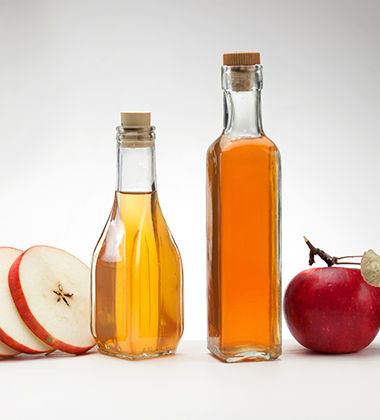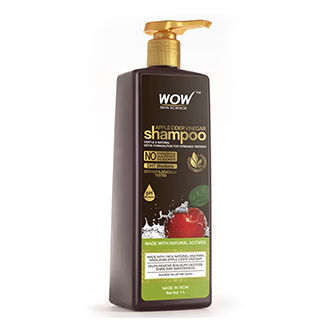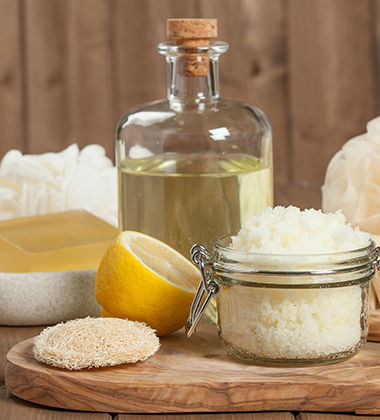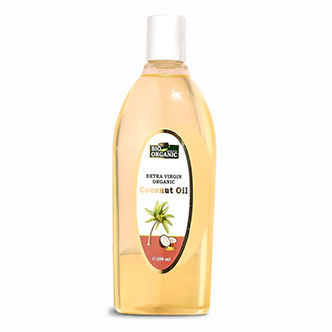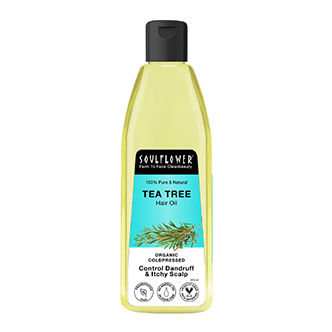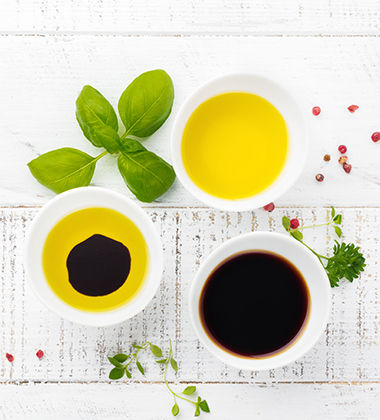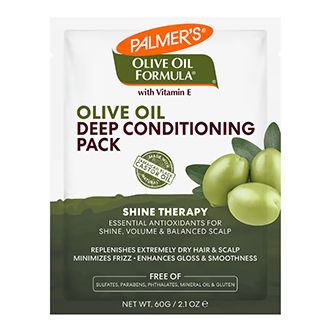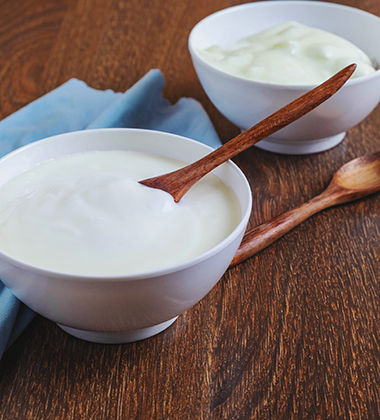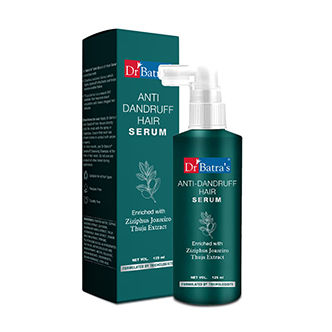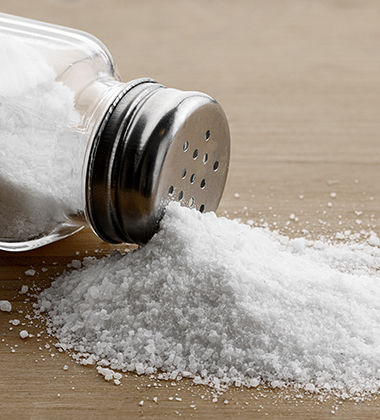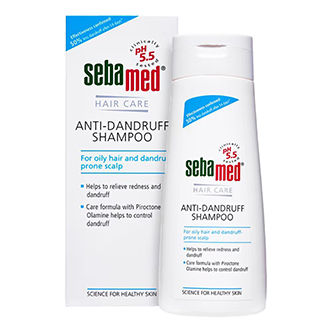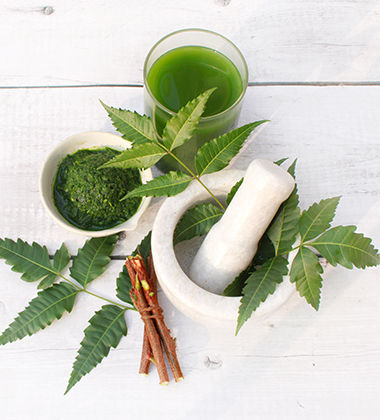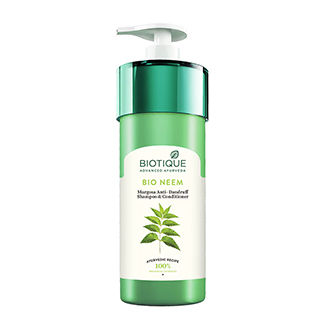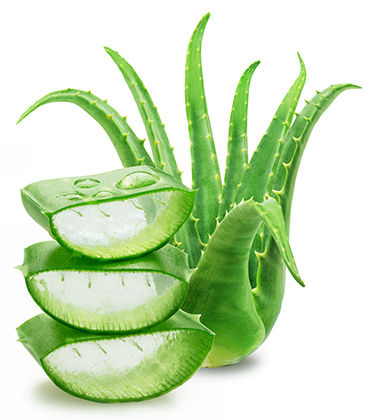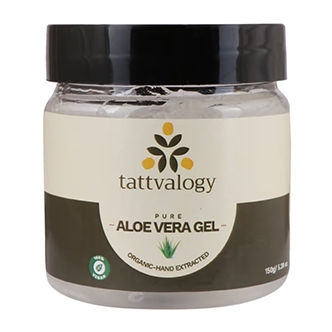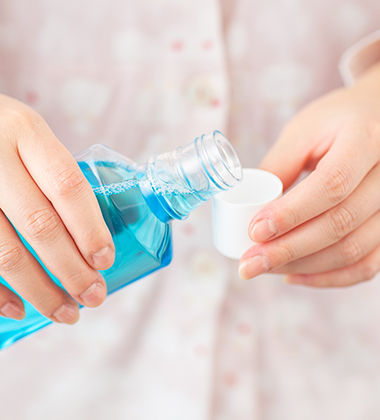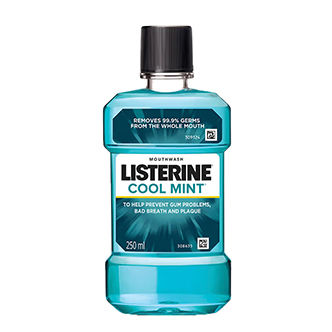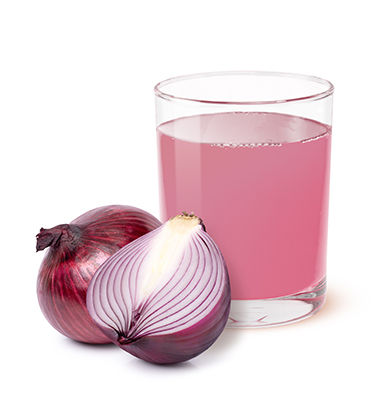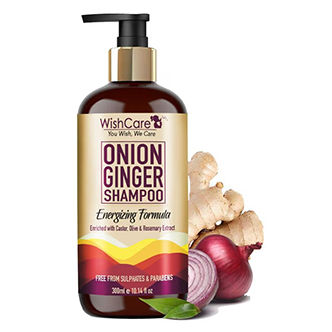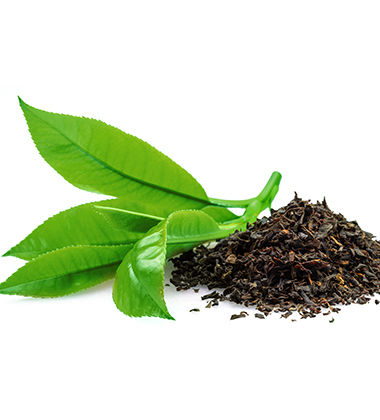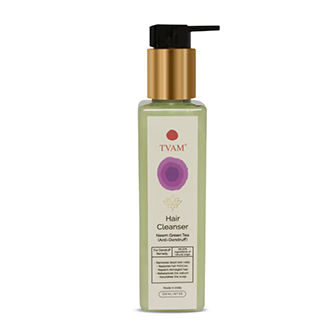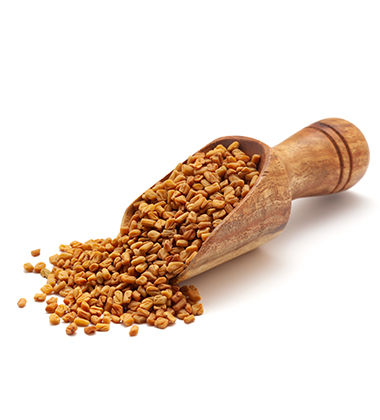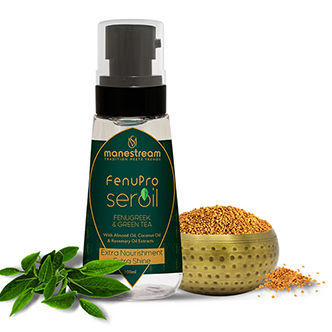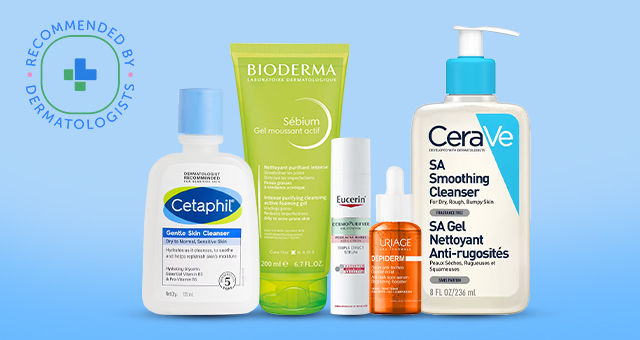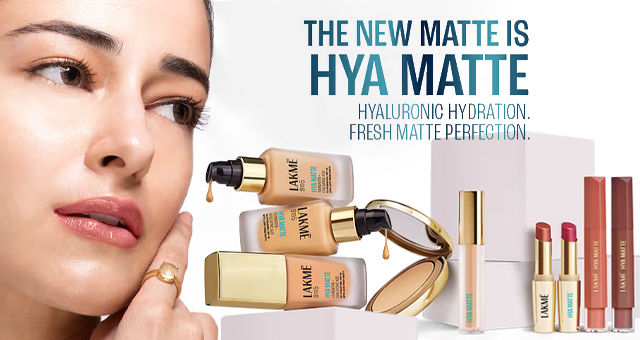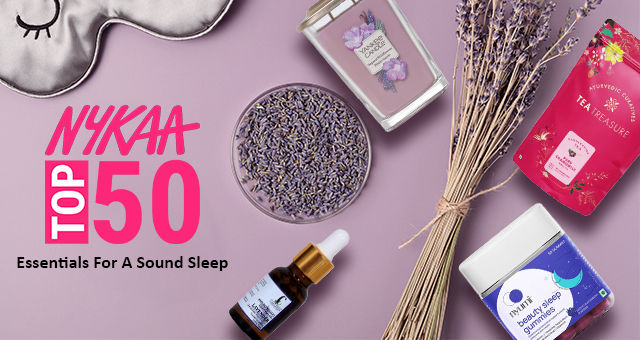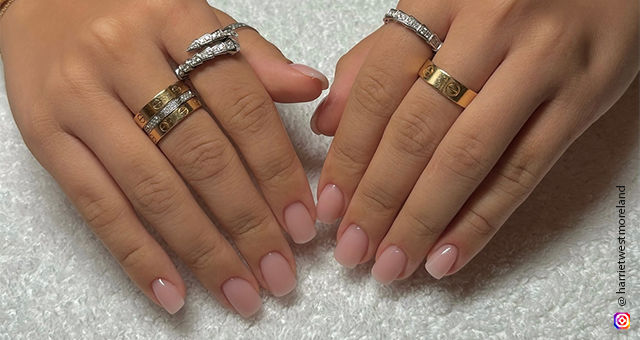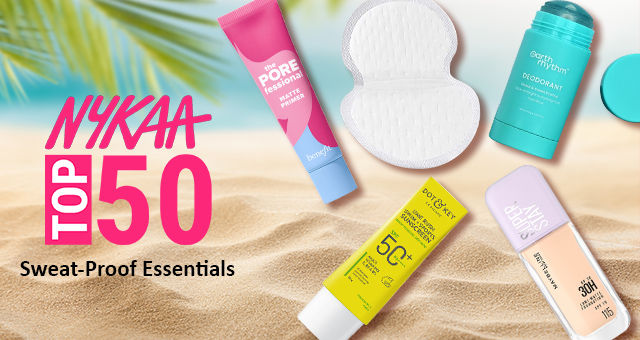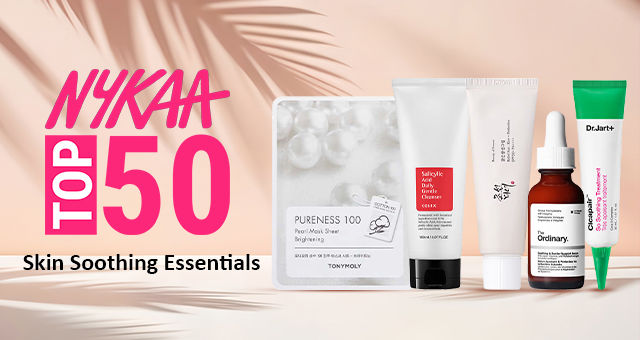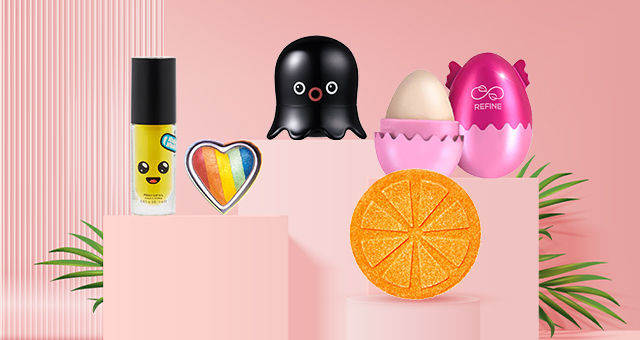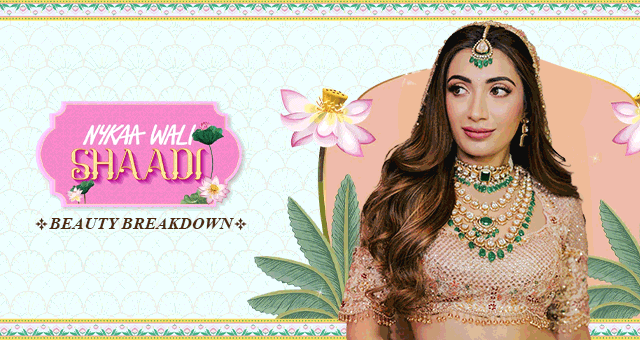
In This Story:
According to research, three out of six people experience dandruff at least once in lifetime. Dandruff is more about the scalp than about the hair; the health and bounce of your hair can indicate an underlying scalp situation, and no matter how hard you try to hide it, those nasty flakes are always visible to those around you.
Time to combat the lingering scalp issue with simple home remedies for dandruff. But first, let’s take a moment to understand what dandruff is and what causes it in the first place.
What Is Dandruff?
You have all seen it and perhaps experienced it at some point in your life. According to a study, dandruff is a condition when white or grey flakes shred from the scalp. They’re basically dead skin, clumped together into flakes due to excess oil. They are quite harmless, but they look very unpleasant.
Causes Of Dandruff
There are quite a few reasons for dandruff. However, it is mostly temporary and controllable.
- Seborrheic Dermatitis
This is a common skin condition caused by a certain yeast called Malassezia, which is found in the oil secreted by your scalp. Seborrheic Dermatitis causes scaly patches on the head, an itchy scalp, irritated skin, and stubborn dandruff. It usually goes away on its own with regular cleansing and proper care.
- Dry Skin
It is said that people with dry skin are more likely to get dandruff. The chances of dead skin flaking away are higher when your skin is already peeling or scaly. It is most common in dry winter months.
- Skin Conditions
If you have psoriasis or eczema, you are prone to experiencing dandruff more frequently. While it can be avoided with regular care, dandruff is a recurring problem with such skin disorders.
- Hygiene
While hygiene is not directly related to dandruff, not cleansing or shampooing regularly can make the oils from your scalp and skin cells clump together over a period, resulting in dandruff.
- Pollution and Heat
Major factors that cause dandruff are pollution and heat, especially when they affect your scalp together. They can cause excessive sweating, skin irritation, and fungal infections on the scalp – all leading to dandruff.
- Stress
While the yeast, Malassezia, already exists on everyone’s scalp, it can thrive when you are stressed. It amplifies the stubborn dandruff on your hair. Stress also causes something called the ‘itch-scratch cycle’ – the more you scratch, the more it itches, making your skin flaky and sensitive.
Types of Dandruff
Dandruff Caused By Oily Scalp
Oily scalps are a great host for flaky clumps to accumulate. The excess sebum on the scalp can trigger an itchy sensation. Opt for oil-controlling cleansers and conditioners that curb oil production and hydrate your scalp for an irritation-free experience.
Dandruff Caused By Dry Scalp
This is the most common reason for dandruff, as a dry scalp causes the top layer of the skin to flake, break, and form in clumps in search of moisture. Just like dry skin, a dry scalp also feels itchy and scratchy due to the lack of moisture. Go for moisturising hair care essentials that retain hydration and control dandruff.
Dandruff Caused By Fungus
Fungus such as Malassezia accelerate the growth of cells on the scalp, which gives rise to yeast infections, given the humidity on your roots. Environmental impurities, sweat, and oil aggravate the bacteria and cause dandruff. Choose anti-fungal, anti-bacterial, or anti-microbial products that remove bacterial formations and cleanse the scalp adequately.
Dandruff Cause By Eczema
Scalp eczema is also very common among people facing pre-existing skin conditions. In such a case, consult your dermatologist for advice and custom-made product recommendations to eliminate the dandruff without causing further irritation.
Dandruff Caused By Dryness & Oil
More often than not, people with combination skin also possess a combination scalp. Their scalp produces excess sebum during the hotter months and becomes extremely dry during colder months. A combination scalp requires products that curb oil while lending ample moisture.
Home Remedies For Dandruff
Here are a few DIY remedies you can try at home to treat dandruff
1. Apple Cider Vinegar for DandruffPurpose: By restoring the pH balance of the scalp, Apple Cider Vinegar (ACV) inhibits the growth of yeast. It also works as a natural hair cleanser and helps unclog pores and hair follicles.
Method: Mix two cups of Apple Cider Vinegar with three cups of cold water and use this mixture to rinse your hair, post-shampooing. Let it sit for two minutes before washing it off. For best results, use this once a week.
Nykaa Recommends:If you are pressed for time or just plain lazy, stick to the readymade wonders of the beauty world. We recommend using the WOW Skin Science Apple Cider Vinegar Shampoo – an easy dandruff treatment at home.
2. Coconut Oil and Lemon for DandruffPurpose: Lemon juice for dandruff works wonders! Known for its anti-fungal properties, coconut oil moisturises a dry scalp and tackles itchiness like a pro. Plus, it nourishes your hair and boosts growth. Need we say more?
Method: For a potent anti-dandruff remedy, combine equal parts Coconut Oil and Lemon Juice and massage it on your scalp. Let it sit for 20 minutes before you wash your hair. Follow this dandruff treatment at home regularly for the best results.
Nykaa Recommends:Indus Valley Bio Organic 100% Pure Extra Virgin Coconut Oil for Dandruff works as an effective conditioning treatment, adding lustre to dull hair.
3. Tea Tree Oil for DandruffPurpose: Tea Tree Oil has long been used to treat dandruff, owing to its potent cleansing and anti-fungal properties. A classic anti-dandruff treatment, if we may say so.
Method: Add six drops of Tea Tree Oil to half a cup of essential oil (such as Lavender), and massage it on your scalp to get rid of dandruff. You can also add a few drops to your regular shampoo to make it an all-natural, anti-dandruff shampoo.
Nykaa Recommends:The Soulflower Tea Tree Hair Oil is a vitamin-enriched scalp care formulation. It curtails sebum production and its anti-fungal properties revive and repair a damaged scalp.
4. Olive Oil and Vinegar for DandruffPurpose: Olive oil for dandruff is a natural conditioner and minimises oxidative damage, owing to its anti-oxidant properties. This lightweight oil is an effective dandruff remedy sans weighing it down. Meanwhile, the acetic properties of vinegar fight off fungal infections and improve blood circulation.
Method: Mix 1 tsp of Olive Oil and 2 tsp of White Vinegar in a bowl of water. Apply this mixture on separate sections of your hair and massage the scalp for five minutes. Wash it off with a sulphate-free, anti-dandruff shampoo and apply conditioner.
Nykaa Recommends:Palmer's Olive Oil Formula Deep Conditioner Pack offers a paraben-free deep conditioning treatment to repair and strengthen the hair.
5. Yoghurt for DandruffPurpose: The lactic acid in yoghurt helps reduce dandruff considerably. The antibacterial properties of this dandruff remedy will ensure that the protein in it strengthens the hair from root to tip.
Method: Rinse your hair with lukewarm water and towel dry it to get rid of excess water. Apply a generous layer of fresh yoghurt on the scalp and hair. Leave it on for 10 minutes. Wash it off with water.
Nykaa Recommends:Use Dr Batra's Anti Dandruff Hair Serum post-shampoo to restore hair vitality and mask any remnant odour.
6. Salt for DandruffPurpose: Salt absorbs excess oil or sebum that can otherwise clog your pores. It steers your scalp away from turning into an oil-extracting land. Salt, when used in adequate amounts, can also help absorb excess moisture and keep fungal infections at bay.
Method: Salt can be added to your regular shampoo. Squeeze a dollop of shampoo onto your palm and add a pinch of salt to it. Apply this salt-sprinkled shampoo on your hair, massaging it into the scalp in circular motions. Leave it on for two minutes and wash it off with lukewarm water.
Nykaa Recommends:An easier way out is to invest in the exemplary Sebamed Anti-Dandruff Shampoo Ph5.5, which contains sodium chloride.
7. Neem for DandruffPurpose: Since dandruff can be linked with fungal growth, this highly antibacterial and antifungal ingredient is the way to go. Besides, neem is touted as an age-old remedy for all skin-related ailments.
Method: Just boil some water with fresh neem leaves till the water turns a tinge of green. Let it cool and massage the neem-infused water onto your scalp. You can also prepare a paste and mix it with aloe vera to make an anti-dandruff hair mask.
Nykaa Recommends:Alternatively, you could swap your daily shampoo and conditioner with Biotique’s Bio Neem Margosa Anti-Dandruff Shampoo & Conditioner.
8. Aloe Vera for DandruffPurpose: This miracle ingredient is a godsend for people with recurring dandruff. Aloe Vera cleanses dead skin and promotes the regeneration of fresh cells. It is a natural coolant, making your itchy, irritated scalp feel soothed. It boasts anti-fungal properties as well.
Method: Use Aloe Vera gel as a hair mask every week to avoid getting dandruff. If you already have dandruff, mix this gel with some yoghurt to get relief from inflammation.
Nykaa Recommends:Try out Nature's Tattva Pure Natural Aloe Vera Gel if the plant is unavailable.
9. Mouthwash for DandruffPurpose: The anti-inflammatory, antiseptic, and anti-fungal properties of a mouthwash ruthlessly kill dandruff, restoring the health of your scalp. This surprising dandruff remedy leaves the scalp feeling fresh.
Method: Take an empty spray bottle and pour equal quantities of mouthwash and water into it. Wash your hair with your regular shampoo and conditioner. Towel dry the scalp. Spritz this spray onto the scalp and let it sit for three minutes. Follow it with a cold water rinse.
Nykaa Recommends:The best mouthwash you can use is the Listerine Cool Mint Mouthwash. But proceed with caution; avoid using Listerine Cool Mint Mouthwash if you have broken or inflamed skin.
10. Onion JuicePurpose: The antibacterial properties of onion help reduce dandruff from the scalp while also promoting healthy hair growth. The natural sulphur present promotes hair growth, curbs hair fall, and reduces dandruff.
Method: Take the juice of a freshly pressed onion and apply it directly to your scalp. Leave it on for 15–20 minutes before rinsing it off. You can also use a shampoo or conditioner formulated with onion to avoid the pungent smell.
Nykaa Recommends:We recommend the onion-ginger shampoo by WishCare, as it is enriched with natural ingredients that support the hair follicles, cleanse dandruff that might be clumped, and boost hair growth.
11. Green TeaPurpose: Green tea offers anti-fungal and antioxidant properties that aid in breaking built-up scalp oil while helping curb its overproduction. It also soothes the scalp and neutralises any fungus-causing bacteria.
Method: Brew green tea and allow it to cool down. Use this tea leaf extract on your scalp. Gently massage the tea into your scalp and let it sit for 10–15 minutes. Rinse it with water and cleanse the scalp adequately.
Nykaa Recommends:We recommend the Tvam Hair Cleanser with Neem Green Tea extract to reduce dandruff. The antioxidants present will curb fungal production and increase hair growth.
12. FenugreekPurpose: The topical application of fenugreek paste helps reduce dandruff by nourishing the hair follicles, adding nutrients to the scalp, enhancing hair growth, fighting common hair woes, and leaving the hair stronger and healthier.
Method: Take some fenugreek or methi seeds and soak them in water overnight. Grind the soaked seeds into a paste and apply it to your scalp. Let it rest for around 30 minutes, then, rinse it off.
Nykaa Recommends:We recommend the serum by Manestream Fenupro Fenugreek & Green Tea Seroil that boosts shine, reduces dandruff, and soothes a dry, itchy scalp.
Dandruff Treatments
Dandruff can be controlled if you follow a diligent hair care routine coupled with special medicated shampoos. Do not stick to one shampoo, instead, we recommend switching between different anti-dandruff shampoos every 2-3 weeks to not let your hair get used to one formulation.
Pick shampoos containing anti-dandruff ingredients:
1. Selenium SulfideShampoos containing Selenium Sulfide as the main element reduce bad fungus and lessen dead skin cells a.k.a. dandruff flakes.
Caution: While this shampoo may eliminate dandruff, it could also wash away your expensive hair colour. So, if you have freshly coloured tresses, you might want to opt for an alternative method to treat the dandruff.
2. Salicylic AcidThese shampoos work on knocking off those flakes but might leave your scalp dry. Follow it up with a moisturising conditioner to retain the moisture in those locks.
3. Pyrithione ZincThe antibacterial and anti-fungal properties of Pyrithione Zinc help reduce the fungus that causes dandruff and Seborrheic Dermatitis.
4. TarCoal tar slows the rate at which skin cells on your scalp die and flake off. It helps keep dandruff in control. However, tar-based shampoos may cause hair discolouration.
5. KetoconazolePick a shampoo with this ingredient for maximum impact. Ketoconazole is an anti-fungal medication that is used to treat infections and skin conditions. If you have Seborrheic Dermatitis, this is a great choice for a regular shampoo.
6. Tea Tree OilA common ingredient in shampoos and conditioners nowadays, Tea Tree Oil has healing properties and is an anti-fungal natural medicine. Used in Ayurvedic medicine, this ingredient will do wonders for your scalp.
Tips To Reduce Dandruff
- Avoid Carbs And Sugar
One of the foolproof ways to reduce dandruff is to stay away from carbs and sugar. This is because yeast feeds on high-carb food that builds glycogen in the skin. Cut down on your everyday carbs and stick to a once-a-week dessert, if you’re prone to dandruff.
- Exfoliate Your Scalp
Try Coffee scrubs, Walnut scrubs or Charcoal-based scrubs for your scalp. Exfoliating will break away the dead skin before it forms into flakes on your scalp.
- Don’t Scratch
Avoid touching your scalp altogether. Use coolants such as Yoghurt or Aloe Vera to soothe the itch without having to scratch.
- Take Supplements
If the dandruff persists, try taking probiotic supplements and proteins that will nurture your scalp back to health.
FAQs
-
Why is dandruff more common among men?
It is believed that testosterone – the male hormone – plays a significant role in dandruff production. Moreover, a prominent history of dandruff in the family means more chances of the problem trickling down to you. Homeopathy for dandruff is a natural dandruff treatment to alleviate such issues.
-
When should I consult a dermatologist for dandruff treatment?
Following effective home remedies and maintaining a healthy hair care regimen can help tackle dandruff. However, if the problem persists or gets worse, you could be suffering from Seborrheic Dermatitis, a severe medical condition that involves fungal infections on the scalp. In such a case, it is wise to consult a dermatologist at the earliest to understand the best dandruff treatment for your hair.
-
What are the signs to look out for if I have dandruff?
You are likely suffering from dandruff if you face any of the following issues:
- Visible white flakes on your clothes especially while you’re brushing your hair
- Itchiness and redness on the scalp
- A constant need to scratch the scalp
- Greasy patches on the scalp
- Minor facial rash on eyebrows, ears, or nose
-
What are the foods that can mitigate dandruff troubles?
- Maintaining a healthy diet is the most natural way to treat dandruff. Include these foods in your daily diet to reduce dandruff:
- Chickpeas
- Ginger
- Apples
- Bananas
- Wheat germ
- Sunflower seeds
-
Is it ideal to wash my hair every day if I have dandruff?
Cleansing your scalp frequently is recommended from a hygiene perspective, as it prevents more dandruff. However, washing your hair all days of the week is not advised. Ideally, washing your locks every 2-3 days is enough. Along with that, follow a good scalp treatment for dandruff, as solving the problem from the source is essential for long-term relief.
-
What should I do if none of the home remedies proves to be a complete cure for my severe dandruff issue?
If you think your dandruff persists no matter what you try, you could be suffering from Seborrheic Dermatitis. Visit a dermatologist to figure out a hair dandruff treatment that works at alleviating the issue. You could also try an Ayurvedic treatment for dandruff if you prefer the natural route. Various OTC medicines for dandruff could work faster than home remedies. Ketoconazole and Nizoral A-D are some of the best medicines for dandruff. But be sure to consult your doctor before taking any oral medication.
-
Are dandruff and hair loss directly related?
Dandruff-induced hair loss is a common occurrence. However, dandruff does not directly result in hair loss. Since the itchiness is symbolic of dandruff, the constant scratching of an irritated scalp can damage the hair follicles. This then leads to dandruff-induced hair loss.
-
Does dandruff cause pimples or acne?
In a way, dandruff could be responsible for that sudden outbreak of pimples. When hair strands with dandruff come in contact with the face, it can induce pimples. Avoid haircuts or hairdos that require your hair to be in constant touch with your forehead or cheeks. In cases of dry dandruff, stick to a warm Coconut Oil massage once a week to improve blood circulation to the scalp and reduce pimples.
-
Does oiling help dandruff?
No. It is a myth. Oiling may cause the flakes to stick to your scalp. Regular shampooing and moisturising with gel-based ingredients like Aloe Vera may help soothe your scalp. Even cool, water-based elements like cucumber can make your itchy scalp happy.

